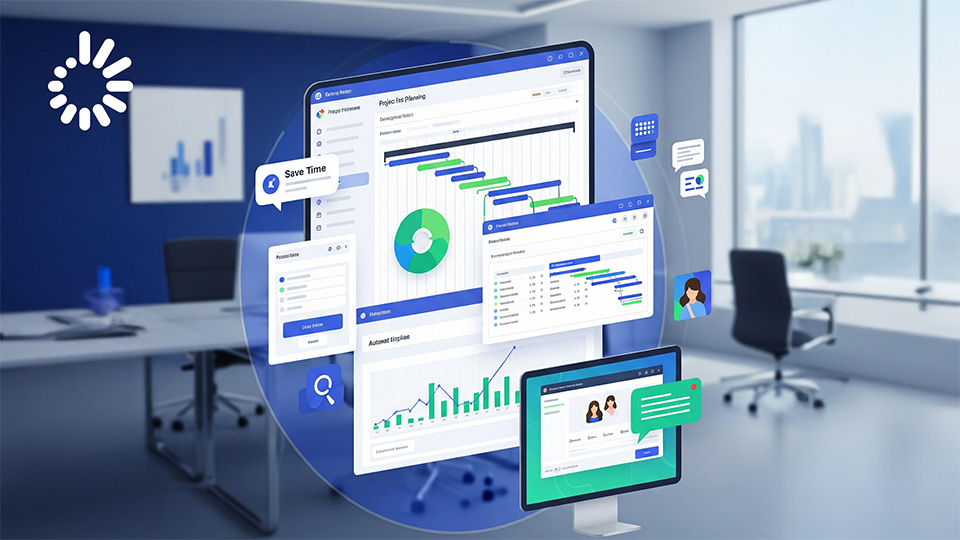November 13, 2023
Why Testing Your Software is Crucial
Development and testing should always be complementary. Conducting tests is just as crucial as developing the program to guarantee its reliability and functionality before users receive it. In addition, to avoid any surprises.
Software testing is still an essential component of the software development life cycle (SDLC) today. It seeks to reduce the amount of possible flaws while offering seamless, trouble-free program functionality.
In this article, Dirox will examine testing, including its importance in the software development process and the different tests necessary to produce high-quality software.
What is Software Testing?
Software testing is the process of making sure software satisfies the required specifications and functions by validating and verifying it. Testing determines whether the software is functionally sound, finds and fixes errors, and improves the program's overall quality. Testers utilize a variety of testing methods and approaches to ensure that the program performs as intended.
Software testing is a crucial step in the software development process that evaluates how well the program complies with project requirements. To produce and maintain a user-friendly product, it is much easier to control risk and streamline the process when testing is conducted from the beginning to the finish.
Verifying that consumers will not suffer any bad effects from software bugs is the main objective of testing. These bugs are software mistakes that lead to wrong or unexpected outcomes. We may categorize a wide variety of bug types into different groups.
Low-impact bugs do not interfere with users' experience or create a lot of problems for them.
High-impact bugs affect the functionality of the application more, although it is still functional.
Critical bugs render an application unusable by interfering with its basic functions.
5 Ways Lack of Software Testing Can Harm Your Software
If you think testing is a waste of time, think again. You might be saving some minutes now, but you'll be paying for it later with interest. Here are some of the nasty consequences of skipping testing:
1. Escalating Costs
You know how they say a stitch in time saves nine? Well, a bug in time costs nine. Or more. The longer you wait to fix a problem, the more expensive and complicated it becomes. You might end up rewriting your whole code, or even hiring IT outsourcing services.The Systems Sciences Institute at IBM has reported that the cost to fix an error found after product release was four to five times as much as one uncovered during design, and up to 100 times more than one identified in the maintenance phase.

2. Negative Reputation
Nobody likes buggy software. Especially not your users. They will get frustrated, annoyed, and angry with your product. They will write bad reviews, complain on social media, and tell their friends to avoid your software like the plague. And you might have to forget about getting any new customers. According to a survey by Dimensional Research (sponsored by ZenDesk), 95% of people who had a negative interaction with a product or service will share their bad experience with friends, family, and social media.
3. Legal Troubles
Depending on what kind of software you're developing, you might have to comply with certain regulations and standards. If you don't test your software properly, you might be breaking the law without even knowing it. This can expose the developers to legal risks, such as fines, lawsuits, or criminal charges.
4. Security Risks
Testing is not only about finding bugs, but also about finding vulnerabilities. If you don't test your software for security issues, you're leaving the door wide open for hackers and cybercriminals. They can steal your or users’ data, damage your system, or hijack your software for their own malicious purposes.
5. Customer Churn
The ultimate price of poor testing is losing your customers. If your software is unreliable, unsafe, or unusable, your customers will have no reason to stick with you. They will look for alternatives that can meet their needs and expectations. And once they leave, they are unlikely to return. A survey conducted by Qualitest showed that 88% of app users will abandon apps based on bugs and glitches.
Therefore, testing software before releasing it is a wise and prudent decision. It will prevent many problems and ensure customer satisfaction in the long term.
4 Types of Tests
If you want to make sure your software is as good as it can be, you need to test it thoroughly. That's where the experts at Dirox Quality Control Department come in, conducting these essential tests:
1. Functional Testing
Functional Testing ensures your software operates flawlessly, much like testing a car's engine, making sure it performs as intended. Instead of wrenches and screwdrivers, testers use code and logic.
2. Performance Testing
This type of testing measures how well your software handles different scenarios and loads. It's like testing a car's performance in various weather and road conditions, ensuring it can cope with any situation.
3. Security Testing
This type of testing assesses how secure your software is, detecting and fixing any weaknesses or threats. It's like securing your car, preventing any unauthorized access or damage but we don't worry about thieves and vandals, we worry about hackers and viruses.
4. Usability Testing
Usability Testing evaluates how easy and enjoyable your software is to use, satisfying the needs and preferences of its users. It's like optimizing a car's cockpit for the driver, making it comfortable and convenient.
The Ideal Software Tester
Software testers are the ones who search for bugs of all kinds, try to identify what causes them through various tests, and then utilize that information to assist developers in fixing the problems.
A software tester should have the skills and knowledge to design and execute test cases, identify and report defects, and communicate effectively with the developers and clients. Some of the main duties of a software tester are:
Designing test scenarios and test cases based on the software requirements and specifications.
Executing test cases and verifying the results against the expected outcomes.
Reporting and tracking defects using appropriate tools and methods.
Collaborating with the development team and the clients to resolve issues and provide feedback.
Creating and maintaining test documentation such as test plans, test reports, and test scripts.
Participating in test reviews and walkthroughs to ensure the quality and completeness of the testing process.
The software development life cycle (SDLC) and the various testing methods used at each stage should be well understood by software testers. Additionally, they need to be knowledgeable about the many testing methods and instruments that are employed for diverse applications, including security, usability, performance, and functional testing. For example, they should master bug-tracking tools like Jira, Lambda Test or Bugzilla.
Software testers must have the ability to adjust to diverse testing conditions and situations based on the complexity and type of the software they are testing.
Finding a qualified and reliable software tester can be a challenging task for many businesses. You may have to spend a lot of time and money on hiring, training and managing an in-house tester, or you may have to deal with the risks and limitations of freelancers. That's why outsourcing a software tester can be a smart and cost-effective solution for your testing needs. For example, Dirox has many experienced and skilled testers who can work on your projects remotely, using the latest tools and methodologies!
Conclusion
Since software testing ensures the product's quality before it is provided to end-users, it is essential to the software development life cycle. It guarantees that everything functions as planned and that the program is prepared for user presentation.
You can reduce the likelihood of suffering from financial losses or security breaches, boost the possibility of satisfying user needs, and enhance the brand image by putting appropriate testing into place.
Contact Dirox today and let our experienced Quality Controllers take your projects to perfection!






























.svg)













